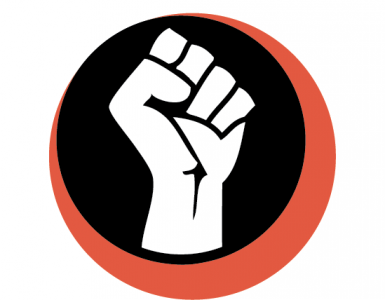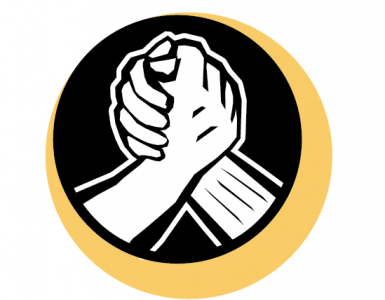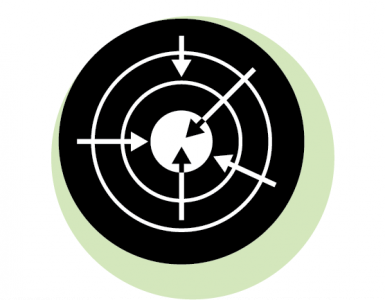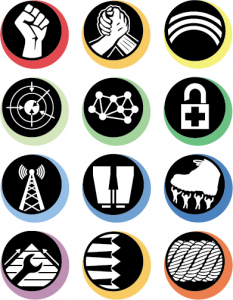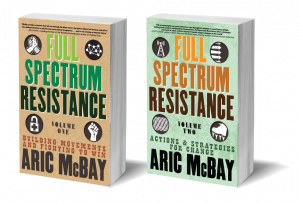What shared factors make movements effective?
In a nutshell: Those in power rule by divide and conquer; resistance movements can win by building shared understanding and solidarity, and by using a diversity of tactics and approaches to build powerful movements that can use disruption and militancy.
| In this chapter: | |
| Wimmin’s Fire Brigade – An aboveground campaign against violent pornography video stores falters, until an underground group turns up the heat. (p. 81) | |
| The Overton Window and Radical Flanking – Militancy can work by itself, but militancy can also up crucial space for larger moderate groups; and militancy can magnify the impact of moderate tactics. (p. 84) | |
| Diversity of Tactics – Effective movements don’t just use one kind of tactic; they involve many different groups using many tactics; most of the left is stuck in a narrow part of that spectrum of tactics, which makes it ineffective. (p. 98) | |
| Disruption and Poor People’s Movements – Employed and impoverished people of the 1930s show how disruption is central to resistance; militancy without organization can accomplish more than organization without militancy. (p. 108) | |
| Movement Building – Strong movements include many different kinds of people with different perspectives, backgrounds, and tactics; if we want to overcome “divide and conquer” repression we must deliberately reach out to build diverse movements based on common interests, and synthesize new shared perspectives. (p. 112) | |
| A Tug of War – Diverse movements can exert political force even when they aren’t organized into formal coalitions or alliances. (p. 124) | |
| Practicalities of Full Spectrum Resistance – Powerful movements use a diversity of tactics, cooperate while using different tactics, reach across different fault lines and barriers, synthesize their shared ideas from different struggles, and uphold solidarity; there are practical guidelines for making this work. (p. 127) | |
Movements and groups in this chapter:
Featured: Wimmin’s Fire Brigade, 1930s Poor People’s Movements. Discussed: EarthFirst!, Direct Action (Squamish Five), Green Corn Rebellion, Rainbow Coalition (1960s), Poor People’s Campaign, Lesbians and Gays Support the Miners, 1980s Coal Miners’ Unions. Mentioned: Black Panther Party, American Indian Movement, Puerto Rican Independence, Deacons for Defense, Suffragists, Freedom Rides, Black Lives Matter, NAACP, Italian Red Brigades, Operation Dismantle / Anti-Nuclear Movements, Montgomery Bus Boycott, Poll Tax Resistance to Margaret Thatcher, Elaho Valley Forest Defenders, Warsaw Ghetto Uprising, Matewan Coal Miners’ Strike, Indian Independence Struggles, Anti-Nazi Resistance in Occupied Europe, Arab Spring, Occupy Movement, Red Army Faction, Puerto Rican Young Lords, Students for a Democratic Society, NAACP, MOVE, United Farm Workers, Love Canal Protests, Industrial Workers of the World (Wobblies), 1999 WTO Protests in Seattle.


